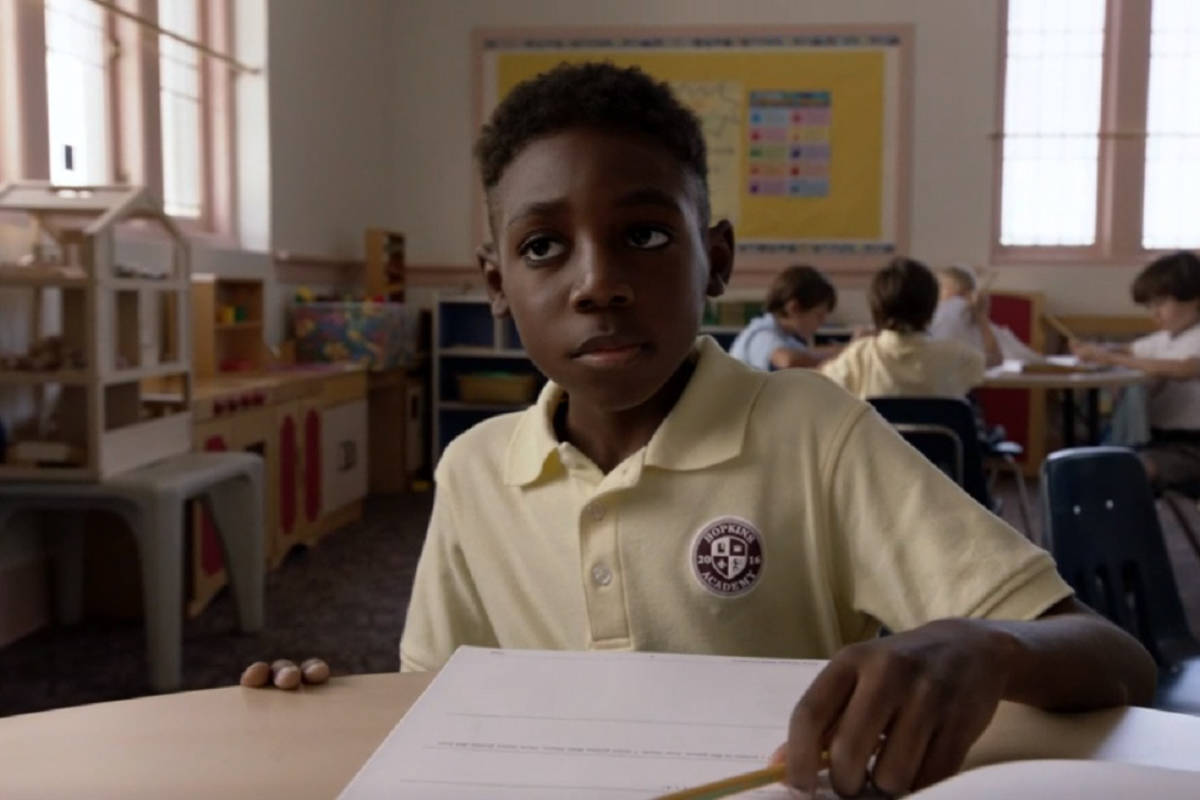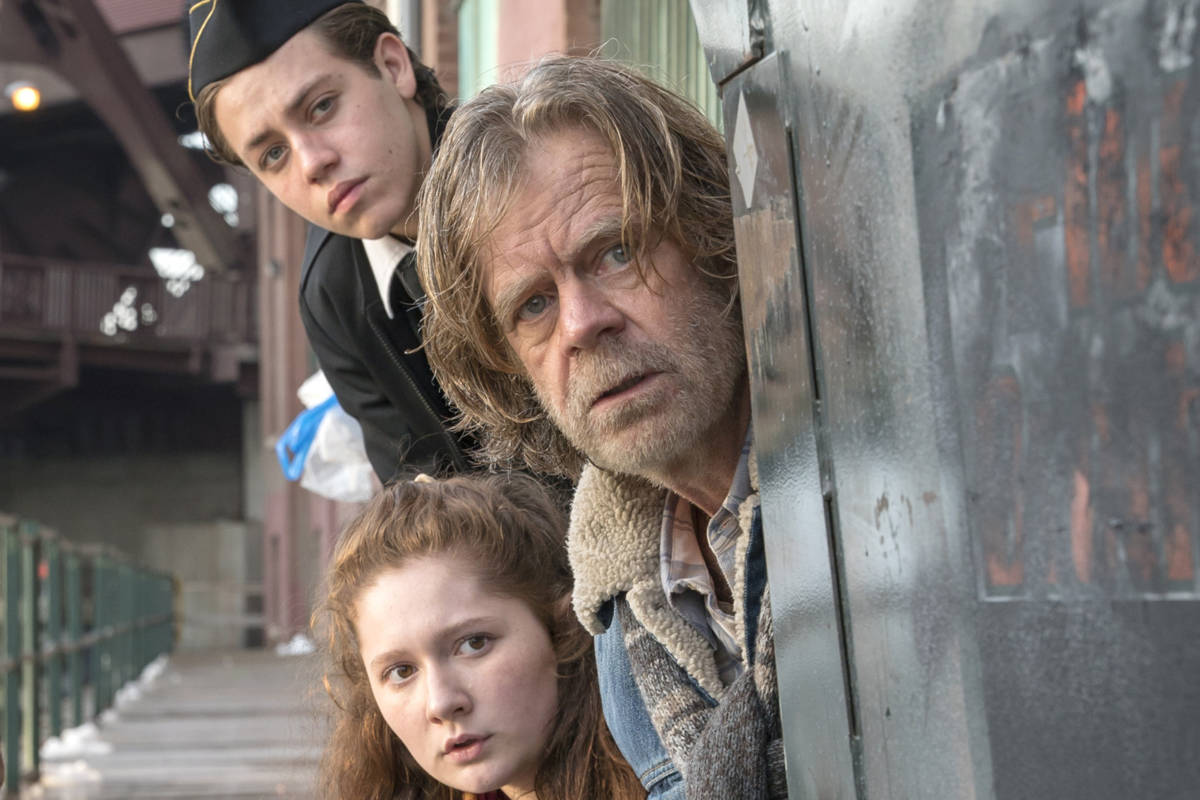Shameless has always been consistent when it comes to delivering the hard-hitting truths about living in American poverty. The Gallaghers exist as a sort of cheaper-by-the-half-dozen example of how many survive life in the inner city, while navigating a system that would prefer they fail. While race is not frequently a theme on the show, as Liam, the youngest of the Gallagher boys and the only black child in the family, gets older and becomes more vocal, spending time on the topic is sure to become inevitable.
In the fifth episode of season eight, Liam, played by Christian Isaiah, begins attending private school and his experience struck a personal cord with me and probably many poor students or students of color that get sprinkled in to boost diversity. Liam is, in many ways, the kid I wish I had become earlier: honest, deadpan and effortlessly himself.
This season finds the Gallaghers trying to navigate the changes that are occurring in their neighborhood due to gentrification. Some of them have a rebellious attitude towards the changes and others have adopted the idea that if you can’t beat ‘em, join ‘em. Frank, as always, plays by whatever rules suit him best at the moment.
In the episode titled “The (Mis) Education of Liam Fergus Beircheart Gallagher”, a nod to Carter G. Woodson’s 1933 book “The Mis-Education of the Negro”, Frank becomes irate at the discovery that the local public school has been shut down because of low attendance, due primarily to the changing socio-economic status of the neighborhood. Initially, he is against private schools infiltrating his neighborhood but when Liam is offered a spot in the school, Frank seizes the opportunity as it serves his attempt to redeem himself as a decent father in the eyes of his children.

No explanation is initially given for offering Liam a spot in the school, but the reason behind it is quickly revealed when Liam states that he spends most of his time on the playground. Being one of the few black children, if not the only one in the school means that Liam is forced to play the role of token. His job is to leave the classroom when commanded and wave to prospective students and their parents during tours, lending the façade of diversity to the school’s image.
When Liam fails a test, Frank is called in. After looking over the material he realizes that the test is biased, in favor of the wealthy students who are familiar with upper-crust things like yachts and foyers. He makes a statement that stuck with me because it defined my own private school experience: “you’ll put his face on your brochure, but you ignore his background.”
In eighth grade I got my first debit card. Its sole purpose was for my father to be able to send money for my brother and I to travel to school, or purchase necessary toiletries or food now and then. He loaded it with about $500 and I wasted no time blowing that cash on a pair of Tiffany’s earrings and a bracelet engraved with my initials. It was very important to me to fit in at this point and the jewellery gave me bragging rights among my friends, mostly other scholarship girls who were interested in obtaining the trinkets that we believed symbolized membership in the society we commuted to every day, some of us on the bus, others in our mother’s second-hand cars.
I caught hell for the Tiffany’s stunt, which in some ways was fair and in others was not. I was a kid, only fourteen, eager to fit in with people I had not yet realized I didn’t like, if only to validate my presence in the space. My mother was in prison, my father was in Florida and no one seemed all that interested in raising me. So of course, I made poor decisions like buying expensive jewellery I would sell on eBay a decade later to make rent.
I laugh at the story now, but it’s also very sad. The money was sent for our survival, and fitting in was more important than surviving. By the time I reached the end of high school, I was over trying to fit in. In fact, I lost my work-study position as a tour guide for telling prospective students the “truth” about the school. I was indignant about it at the time but retrospectively, it was probably fair. It was “my” truth for sure, and I suspect it was that of most black students, but it might not have been everybody’s – certainly if you were, for example, the daughter of a president, your blackness would have been treated differently and poverty wouldn’t have been a factor at all.

Liam’s perspective is an interesting one. Coming from a family of white people, he is not moved by that characteristic of his new classmates. Still, he recognizes that his own skin color is a novelty for them. And in regard to his failing grade, Liam received a type of justice I never remember getting – the teacher adjusts the content of the tests to be more inclusive, or rather less exclusive. Maybe this was a nod to how a black child with a white parent might be treated or perhaps the writers wanted to resolve the issue quickly.
Either way, it is satisfying to me as someone who was once in Liam’s position, to see his presence initiate some changes, as opposed to him simply being used as a prop. After all, if an institution is interested in appearing diverse, it should start by actually being diverse and embracing the cultures and backgrounds of the marginalized folks whose presence it benefits from.
When sitting in the hot tub with his older, white brothers, Liam says of his day at school, “some cracker told me my life mattered today”. It is simultaneously a crass and heartwarming statement. That Liam experiences little to no confusion about race is refreshing. Perhaps it is because he has been genuinely loved by white people before, his family, that the attention from his classmates due to his skin color doesn’t give him a complex. It is this genuine love that makes him able to distinguish between his family and the “crackers” at school, who quickly get over him when a newer, blacker, more ghetto student arrives. It is nice to see a little black boy who is so self-assured especially when he is being educated in an institution that knows so little about him.
Some of the coverage you find on Cultured Vultures contains affiliate links, which provide us with small commissions based on purchases made from visiting our site. We cover gaming news, movie reviews, wrestling and much more.



